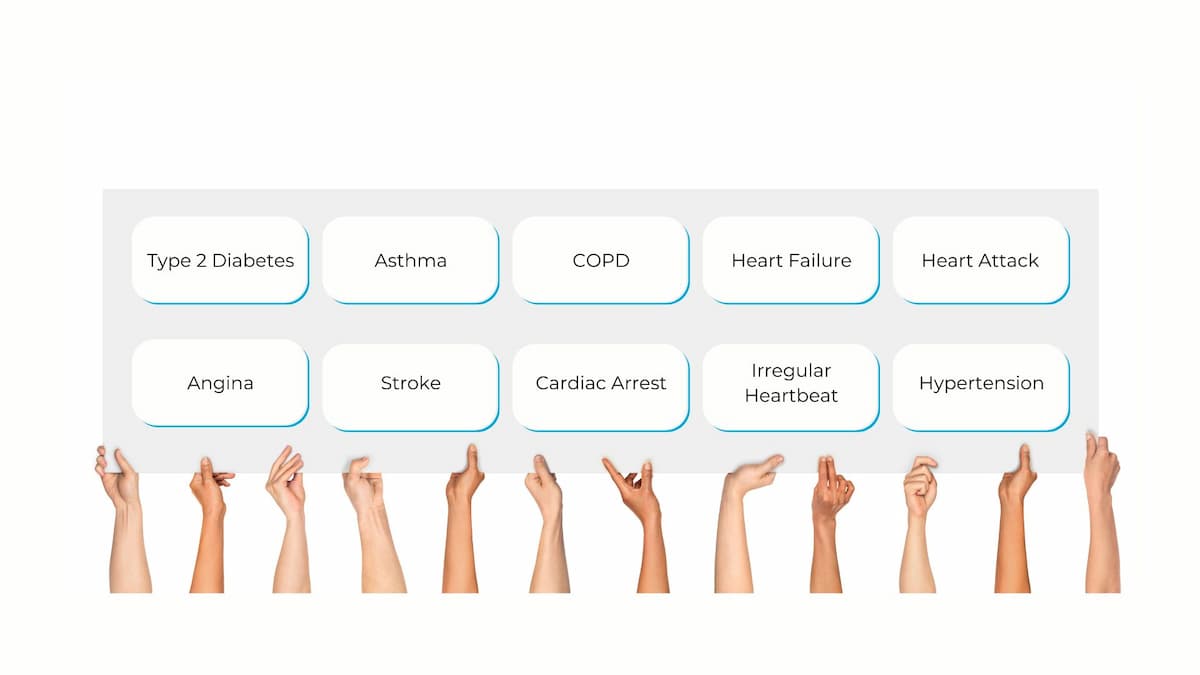
Connecting the Dots: How Anxiety Raises Heart Health Risk in Men
How Anxiety Negatively impacts Men's Heart Health
Anxiety is a common condition that affects millions of people worldwide and its impact on overall health is profound. Recent studies have shown that anxiety can have a particularly significant effect on men's heart health, increasing their risk of cardiovascular problems.
It is more than just feeling worried or stressed; it's a persistent and overwhelming sense of unease, fear, or tension. When anxiety becomes chronic, it can lead to a range of physical and emotional symptoms, including increased heart rate, muscle tension, and sleep disturbances.
But how is Anxiety connected to heart health in Men?
Anxiety triggers the release of stress hormones like cortisol and adrenaline. When these hormones surge repeatedly, they can cause inflammation and strain on the heart, potentially leading to heart disease. It often leads to increased blood pressure, which can put extra stress on the heart. Over time, high blood pressure is a significant risk factor for heart disease. Some men turn to unhealthy coping mechanisms when dealing with anxiety, such as smoking, excessive drinking, or overeating, which are all associated with heart disease risk. These factors can contribute to obesity and heart problems. Anxiety can also disrupt sleep patterns, leading to sleep disorders like insomnia. Poor sleep is linked to an increased risk of heart disease.
How you can Manage Anxiety:
1. Seek Professional Help: If you or a loved one is struggling with anxiety, don't hesitate to seek professional help. Therapy, medication, or a combination of both can effectively manage anxiety symptoms.
2. Physical Activity: Regular exercise is a potent stress reducer and has numerous benefits for heart health. Aim for at least 150 minutes of moderate-intensity exercise per week.
3. Healthy Diet: Adopt a heart-healthy diet rich in fruits, vegetables, whole grains, lean proteins, and low in saturated and trans fats. This can help control anxiety and protect your heart.
4. Stress Reduction Techniques: Learn stress reduction techniques like mindfulness, meditation, deep breathing, or yoga to help manage anxiety and reduce its impact on your heart.
5. Limit Alcohol and Quit Smoking: If you drink alcohol, do so in moderation, and if you smoke, seek help to quit. These lifestyle changes can significantly improve heart health.
6. Quality Sleep: Prioritize good sleep hygiene by creating a comfortable and relaxing sleep environment. Establish a regular sleep schedule and avoid caffeine and electronics before bedtime.
7. Regular Check-ups: Visit your doctor for regular check-ups, especially if you have anxiety or a family history of heart disease. Early detection and management are key to preventing heart problems.
The connection between anxiety and higher heart risk in men is real, but it's not insurmountable. By recognizing the link, seeking help for anxiety and adopting a heart-healthy lifestyle, men can protect their hearts and reduce the impact of anxiety on their overall well-being. Your heart deserves the best care, so take proactive steps to safeguard it from the effects of anxiety.
Note: The content in this blog is for informational and educational purposes only and is not intended as a substitute for professional medical advice, diagnosis, or treatment. Always seek the advice of your doctor or qualified healthcare provider with any questions you may have regarding a medical condition or treatment.


